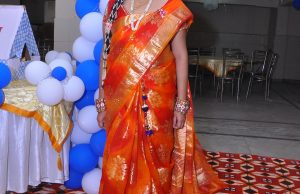Op-Ed: Inconceivable! Detaching Motherhood from Femininity
By Nicole Verdes
Last week, Isabella Dutton, a 57-year-old mother of two in the United Kingdom, wrote a first-person story for the Daily Mail wherein she described her two children as her “biggest regret.” Her admission set off a firestorm of backlash from irate readers. Dutton herself predicted the looming backlash in her article by pointing out, “It’s just that I have been honest. In doing so I have broken a supposedly inviolable law of nature. What kind of mother, after all, wishes she hadn’t had children?”
Women make a multitude of decisions that impact the course of their lives. Some of these decisions are specific to marriage or partnership, career, education, and children. It seems, however, that out of all of the decisions that a woman makes in her lifetime, there is no choice that comes to define her as more “naturally” feminine than her decision to become a mother. The concept of motherhood is so tightly associated with female identity that we’re unable to conceive of a woman who has children and regrets doing so – or who chooses not to have children at all.
There is something about “choosing” not to become a mother that is tied to this ideology of motherhood as a feminine imperative. It’s as if choosing not to have children is choosing not to be feminine, and a woman choosing not to be feminine is a tough pill for people to swallow. Not surprisingly, a Canadian study has found that approximately half of women in their forties who made the decision to remain childfree declined to share with people that their decision was…a decision. The study found that this was because of the social pressure they believed they would receive if they disclosed that they were childfree by choice. It seems that even those of us who choose to remain childfree often keep this decision to ourselves, because we understand that there is an unwritten social contract that comes along with being a woman – not keeping our end of the bargain is something that people judge us for, so why share it?
One of my friends gave up on trying to have children after several unsuccessful rounds of in vitro fertilization. She and I are both in our mid-thirties. Neither of us has children, and neither of us ever will. Although we are both childfree, we’re different. People feel sorry for her. They often try to avoid the subject of motherhood when they’re around her so as not to stir up any unpleasant feelings. But I am childfree by choice, and my decision is constantly being questioned by family, friends, and coworkers. The decision is suspicious for most and downright detestable to some.
Recently, a study conducted by sociologist Julia McQuillan found that distress over not having children is something that women only experience if motherhood is meaningful or important to them. Voluntarily childfree women feel little distress over their decision, regardless of what their family or friends think about their choice. This may seem like an obvious argument – of course women who want to conceive and are unable to do so will experience distress. But if a woman does not get a promotion at work or doesn’t get into the college of her choice, she doesn’t typically receive the same kind of judgment from society and doesn’t typically feel the same type of distress that comes along with not being able to experience motherhood. This is because those achievements and failures are not explicitly tied to gender, and by extension, femininity the way that motherhood is.
The majority of research on childfree women has been comparative. Studies have compared the income, happiness, and experiences of women who have children against those who don’t. More recently, studies have focused on comparing voluntarily childfree women with women who are involuntarily childfree. This has created a dichotomy between women, and dichotomies function to form the basis for divisions. This dichotomy has functioned as a way to design and divide commendable women from shameful ones and loving women from callous ones. In doing so, we have created a culture that views childfree women as conspirators against femininity.
It’s difficult to figure a way to address this issue since reversing something so ingrained in our society is nearly impossible. Perhaps we can start by accepting the fact that motherhood, like many other experiences, is a choice, albeit a socially constrained one. Choosing to be childfree may not guarantee happiness, but neither does choosing to become a mother, as Isabella Dutton so bravely pointed out in her article.
_____________________________________________
 Nicole Verdes is a graduate student at Cal State University, San Marcos. Her interests include gender, sexuality, and feminist studies. She is childfree by choice and is currently anticipating the launch of Inconceivable!, a zine whose focus is to start a dialogue on detaching motherhood from female identity.
Nicole Verdes is a graduate student at Cal State University, San Marcos. Her interests include gender, sexuality, and feminist studies. She is childfree by choice and is currently anticipating the launch of Inconceivable!, a zine whose focus is to start a dialogue on detaching motherhood from female identity.




Pingback: Oh Chérie | Valget om å la være
Pingback: Oh Chérie | Valget om å la være
Pingback: Oh Chérie | Valget om å la være
Pingback: Oh Chérie | Valget om å la være
Pingback: The NotMom Blogger Profile: Nicole Verdes of ‘Inconceivable!’ » Women’s Topics » Thelatestdatingtips.com